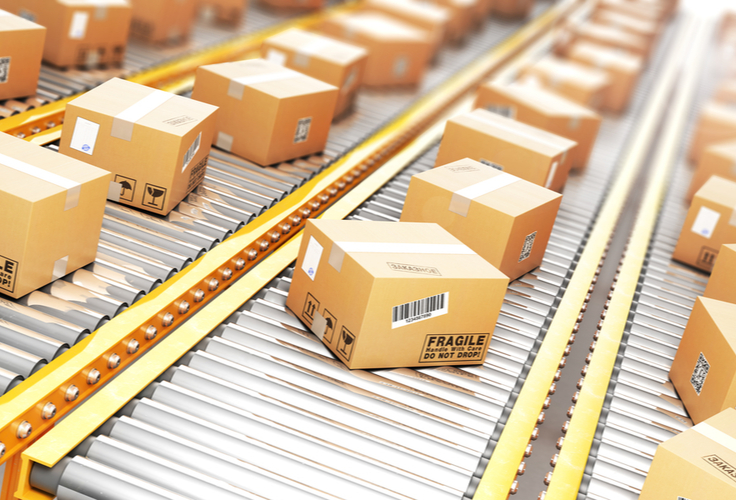If you’re considering an automatic packaging machine for stretch wrapping, case sealing or some other part of your packaging operation, it’s important to consider all the pros and cons. Many companies believe that because manual packaging activities are comparatively slow, they should be automated whenever possible.
While this is quite often the case, make sure to take everything into account before making your decision. Here is an overview of important advantages and potential disadvantages of automation.
Popular Types of Automatic Packaging Machines
- Semi-automatic case sealers (cases presented to the machine manually)
- Fully automatic case sealers (conveyorized box infeed)
- Semi-automatic stretch wrappers (units presented to the machine manually with a forklift or pallet jack)
- Fully automatic stretch wrappers (units pass through the wrapper on a conveyor)
- Carton erectors
- Labeling equipment
- Semi-automatic and fully automatic inner packaging systems, including:
- Air pillows
- Dunnage paper
- Packaging bubble and foam
- Flowable packaging materials
Key Advantages of Automation vs. Manual Packaging
- Speed. Packaging equipment can achieve throughput rates significantly higher than manual case sealing, stretch wrapping and other processes.
- Scalability. Because packaging equipment is fast, it enables companies to more easily scale their operation as they grow.
- Uniformity. Packaging equipment applies the same amount in the same way to each package or unit. This is extremely important for quality control and when customer expectations for consistency are high.
- Quality. Automatic equipment results in more secure shipping cases and unitized loads, reducing damage and improving customer satisfaction.
- Material cost reduction. Typically, machines apply significantly less packaging material to a package or unit than packaging applied manually. This is especially important in stretch wrapping, where automatic equipment can reduce material usage by half or more. Reducing packaging material usage is good for the bottom line and the environment.
- Labor redeployment. Rather than warehouse personnel engaging in time-consuming, repetitive packaging tasks, staff can focus on more important, complex and revenue-generating activities.
- Improved working conditions. By eliminating these repetitive tasks — sometimes quite strenuous as well — workers are less likely to suffer injuries or burnout. Automation can have a major, positive impact on health insurance costs and employee retention.
Possible Drawbacks of Automation
- Centralization. Automation requires some degree of centralization in packaging processes. While this usually is advantageous in terms of space allocation and efficiency, make sure your operation can adapt to a new, centralized configuration. For instance, a distribution center with hundreds of loading docks may not be able to handle case sealing in one or two central locations.
- Capital investment. An automatic packaging machine can cost anywhere from several hundred dollars to in excess of $50,000. Equipment can sometimes be leased or paid for on an installment basis.
- Maintenance costs. In addition to the capital expense, packaging equipment requires ongoing maintenance, and usually an inventory of replacement parts. These costs are not always extremely high, but you should be aware of them before proceeding.
- Application challenges. Some distribution and manufacturing operations do not easily lend themselves to packaging automation. Examples that are sometimes — but not always — difficult to automate:
- Refurbishing and repair operations, where every package is unique
- Extremely large or extremely small shipping cases
- Extremely lightweight pallets/unitized loads
- Irregularly shaped pallets/unitized loads
- Harsh indoor or outdoor environments that corrode equipment
- Extremely decentralized packaging operations
GWC Packaging specializes in packaging automation, with options that fit every budget and throughput objective. If you’re thinking about automating and would like to discuss your application, please contact us now.
